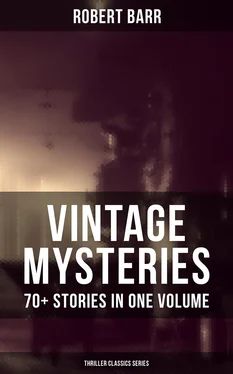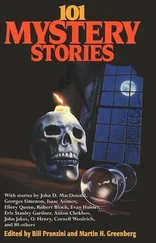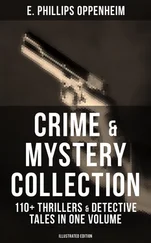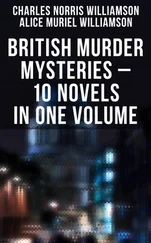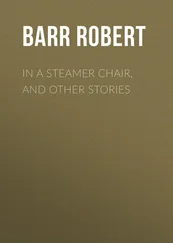'Of the most infinite value, Mr. Dacre.'
'Then let me make another suggestion. I leave it entirely to your bravery; a bravery which, I confess, I do not myself possess. Will you take a hansom, drive to Mr. Innis's house on the Cromwell Road, confront him quietly, and ask for the return of the packet? I am anxious to know what will happen. If he hands it to you, as I expect he will, then you must tell Mr. Gibbes the whole story.'
'Mr. Dacre, your suggestion shall be immediately acted upon, and I thank you for your compliment to my courage.'
I found that Mr. Innis inhabited a very grand house. After a time he entered the study on the ground floor, to which I had been conducted. He held my card in his hand, and was looking at it with some surprise.
'I think I have not the pleasure of knowing you, Monsieur Valmont,' he said, courteously enough.
'No. I ventured to call on a matter of business. I was once investigator for the French Government, and now am doing private detective work here in London.'
'Ah! And how is that supposed to interest me? There is nothing that I wish investigated. I did not send for you, did I?'
'No, Mr. Innis, I merely took the liberty of calling to ask you to let me have the package you took from Mr. Bentham Gibbes's frock-coat pocket on the night of the twenty-third.'
'He wishes it returned, does he?'
'Yes.'
Mr. Innis calmly walked to a desk, which he unlocked and opened, displaying a veritable museum of trinkets of one sort and another. Pulling out a small drawer he took from it the packet containing the five twenty-pound notes. Apparently it had never been opened. With a smile he handed it to me.
'You will make my apologies to Mr. Gibbes for not returning it before. Tell him I have been unusually busy of late.'
'I shall not fail to do so,' said I, with a bow.
'Thanks so much. Good-morning, Monsieur Valmont.'
'Good-morning, Mr. Innis,'
And so I returned the packet to Mr. Bentham Gibbes, who pulled the notes from between their pasteboard protection, and begged me to accept them.
Lord Chizelrigg's Missing Fortune
Table of Contents
The name of the late Lord Chizelrigg never comes to my mind without instantly suggesting that of Mr. T.A. Edison. I never saw the late Lord Chizelrigg, and I have met Mr. Edison only twice in my life, yet the two men are linked in my memory, and it was a remark the latter once made that in great measure enabled me to solve the mystery which the former had wrapped round his actions.
There is no memorandum at hand to tell me the year in which those two meetings with Edison took place. I received a note from the Italian Ambassador in Paris requesting me to wait upon him at the Embassy. I learned that on the next day a deputation was to set out from the Embassy to one of the chief hotels, there to make a call in state upon the great American inventor, and formally present to him various insignia accompanying certain honours which the King of Italy had conferred upon him. As many Italian nobles of high rank had been invited, and as these dignitaries would not only be robed in the costumes pertaining to their orders, but in many cases would wear jewels of almost inestimable value, my presence was desired in the belief that I might perhaps be able to ward off any attempt on the part of the deft-handed gentry who might possibly make an effort to gain these treasures, and I may add, with perhaps some little self-gratification, no contretemps occurred.
Mr. Edison, of course, had long before received notification of the hour at which the deputation would wait upon him, but when we entered the large parlour assigned to the inventor, it was evident to me at a glance that the celebrated man had forgotten all about the function. He stood by a bare table, from which the cloth had been jerked and flung into a corner, and upon that table were placed several bits of black and greasy machinery—cog wheels, pulleys, bolts, etc. These seemingly belonged to a French workman who stood on the other side of the table, with one of the parts in his grimy hand. Edison's own hands were not too clean, for he had palpably been examining the material, and conversing with the workman, who wore the ordinary long blouse of an iron craftsman in a small way. I judged him to be a man with a little shop of his own in some back street, who did odd jobs of engineering, assisted perhaps by a skilled helper or two, and a few apprentices. Edison looked sternly towards the door as the solemn procession filed in, and there was a trace of annoyance on his face at the interruption, mixed with a shade of perplexity as to what this gorgeous display all meant. The Italian is as ceremonious as the Spaniard where a function is concerned, and the official who held the ornate box which contained the jewellery resting on a velvet cushion, stepped slowly forward, and came to a stand in front of the bewildered American. Then the Ambassador, in sonorous voice, spoke some gracious words regarding the friendship existing between the United States and Italy, expressed a wish that their rivalry should ever take the form of benefits conferred upon the human race, and instanced the honoured recipient as the most notable example the world had yet produced of a man bestowing blessings upon all nations in the arts of peace. The eloquent Ambassador concluded by saying that, at the command of his Royal master, it was both his duty and his pleasure to present, and so forth and so forth.
Mr. Edison, visibly ill at ease, nevertheless made a suitable reply in the fewest possible words, and the étalage being thus at an end, the noblemen, headed by their Ambassador, slowly retired, myself forming the tail of the procession. Inwardly I deeply sympathised with the French workman who thus unexpectedly found himself confronted by so much magnificence. He cast one wild look about him, but saw that his retreat was cut off unless he displaced some of these gorgeous grandees. He tried then to shrink into himself, and finally stood helpless like one paralysed. In spite of Republican institutions, there is deep down in every Frenchman's heart a respect and awe for official pageants, sumptuously staged and costumed as this one was. But he likes to view it from afar, and supported by his fellows, not thrust incongruously into the midst of things, as was the case with this panic-stricken engineer. As I passed out, I cast a glance over my shoulder at the humble artisan content with a profit of a few francs a day, and at the millionaire inventor opposite him, Edison's face, which during the address had been cold and impassive, reminding me vividly of a bust of Napoleon, was now all aglow with enthusiasm as he turned to his humble visitor. He cried joyfully to the workman:—
'A minute's demonstration is worth an hour's explanation. I'll call round tomorrow at your shop, about ten o'clock, and show you how to make the thing work.'
I lingered in the hall until the Frenchman came out, then, introducing myself to him, asked the privilege of visiting his shop next day at ten. This was accorded with that courtesy which you will always find among the industrial classes of France, and next day I had the pleasure of meeting Mr. Edison. During our conversation I complimented him on his invention of the incandescent electric light, and this was the reply that has ever remained in my memory:—
'It was not an invention, but a discovery. We knew what we wanted; a carbonised tissue, which would withstand the electric current in a vacuum for, say, a thousand hours. If no such tissue existed, then the incandescent light, as we know it, was not possible. My assistants started out to find this tissue, and we simply carbonised everything we could lay our hands on, and ran the current through it in a vacuum. At last we struck the right thing, as we were bound to do if we kept on long enough, and if the thing existed. Patience and hard work will overcome any obstacle.'
Читать дальше
